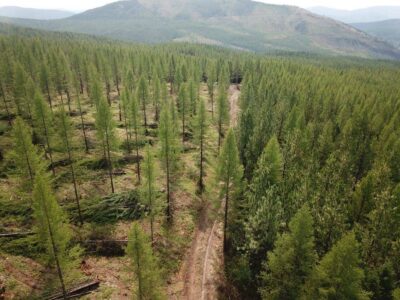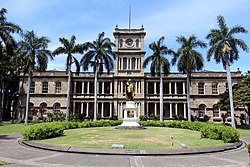60 Minutes flubs the California water story
Last night, 60 Minutes had a long story on the California water crisis, featuring Lesley Stahl interviewing (among others) Arnold Schwarzenegger and UC Davis professor Jeff Mount. On the positive side, the story accurately portrayed the vulnerability of California’s fragile through-Delta water delivery system to a major earthquake or catastrophic levee break. But CBS News flubbed the overall storyline.
In typical media fashion, it oversimplified the story to “Delta smelt versus farmers,” with barely a mention of the two-year closure of the coastal salmon fishery or the crash of the Bay-Delta ecosystem as a whole. Worse, 60 Minutes swallowed whole a tall tale concocted by anti-regulatory interests: that protecting the Delta smelt has economically crippled California agriculture.
That story is demonstrably false on at least two different levels. First, while the San Joaquin valley has had a tough economic year, its woes have not been driven by water shortages. According to this independent report from economist Jeffrey Michael at the University of the Pacific, the real culprit is the collapse of the housing market and therefore of the construction industry:
Reductions in water deliveries due to environmental regulations have increased the Valley unemployment rate by 0.1 percentage point, and the drought 0.2 percentage points for a total water shortage impact of a 0.3 percentage point increase in the unemployment rate. The construction collapse has increased unemployment by at least 2.5 percentage points, and is only one component of the foreclosure and housing crisis that continues to drive the majority of job loss in the San Joaquin Valley.
Indeed, state and federal water suppliers have bent over backwards to give farmers water even as the Bay-Delta ecosystem collapsed. As the graph below shows, average water exports from the Delta increased in recent years (before falling a bit in 2008 and 2009), while Delta smelt and Chinook salmon production were crashing.

Second, it’s not true that California agriculture had a bad year across the board. Farming has always been a boom-bust business, as overplanting gluts the market and tough growing conditions deplete it. But 2009 was not a bust year. The California tomato crop, for example, hit an all-time high both in total production and in dollar value at the farm. As for the almond grower that complained to 60 Minutes that he was having to destroy his trees, take that with a grain of salt. Almond trees have a relatively short life-span, so orchards are continually removed and replanted. California almond production was down about 20% in 2009 compared to 2008, but not due to any irrigation restrictions. The fall was due to a combination of late frost, a wet spring during pollination season and heavy bearing last year. Almonds remain a boom crop, to the point that the big concern for almond growers is boosting demand, not increasing production.
So yes, California has a water problem. But no, it’s not a problem caused by the Delta smelt or by environmentalists. Nor is it a problem that’s destroying the California economy or even the California farm economy. Shame on 60 Minutes for perpetuating myths that only get in the way of addressing the real problem.

Reader Comments
6 Replies to “60 Minutes flubs the California water story”
Comments are closed.








Not to mention the fact that farmers use 80% of the water in CA and anyone who has ever driven across the central valley in August at noon through miles of flooded orchards knows that a goodly portion of the water is wasted.
I think that the issue was fairly characterized as a conflict between natural resources uses verse human use. I think Arnold was correct in his assertion that rebuilding our water deliver system to minimize impacts to natural resources is vital to solve this conflict. I am not trying to defend wasteful farming practices merely pointing out that a significant portion of the fishery impacts (Impingement/entrainment/location and season) of our water system is due to single goal design and operation. The system was designed with water delivery and control in mind and not environmental benefits. This Brownian mind set left our generation with trying to mitigate impacts through hatchery type stock replacements or marginally effective fish screening and salvage systems. It is easy to tell farmers to not plant their crops but it is a lot harder to tell developers to not plant their crops (houses) and even harder to tell the rest of us to not plant our lawns.
Quick question for the author: What do you mean by a relatively short life span? Almond orchards can live to 25-30 years of age (sometimes longer). That’s a longer life than most of the other Prunus sp (Cherry, peach, etc) planted throughout California.
@Morris: I think you are off point, slightly. Checking in with Cal Department of Water Resources, the environmental releases of water account for nearly 50% of our water usage, followed by 40%ish for Ag uses, 10% for urban uses. Urban usage is remarkably lower than one might expect – this is because many cities pump from aquifers to meet their water needs. The reported numbers are only where “captured” water (by dams) is allocated.
The comment about farmers wasting water is off based as well. Extension of research based information to farmers is what I do, and one thing I noticed is fewer and fewer flooded orchards throughout the valley. Farmers are becoming much more efficient with their water. More efficient than most homeowners.
And who is to say flooding a field is all that bad – Some scientists believe that the conversion to micro-irrigation systems is why we are starting to see the drop of aquifers throughout the state. When growers use to flood the field, the water lost to deep percolation would replenish the groundwater that cities could then use through pumping/wells (http://groundwater.ucdavis.edu/research.htm).
Here is a fun fact: To water an acre of lawn in California requires as much water as it takes to grow an acre of tomatoes. To sit here and say farmers are the cause of water shortage is quite silly as many of us can do more to reduce our urban water use as well.
David —
I believe the typical life span of a commercial almond tree is about 20 to 25 years. That may be longer than some other commercial fruit trees, but 60 Minutes was playing on the common perception that trees live more or less forever. That’s clearly not true of almonds. Anyone who regularly passes through almond production country, as I do, has seen orchards removed and replanted. CBS presented the story as if the removal of a mature almond orchard was an event that wouldn’t happen absent some kind of catastrophe. That’s simply not true. Good journalists would at least have asked how old the trees were, and what the normal replacement cycle was, before blaming environmentalists and the Delta smelt.
Thanks Holly. I agree most orchards are pulled around that time – even though I have seen orchards live into their 30’s and still produce 3000 lbs/acre. Then again, its hard to determine how long an orchard will live. As long as it produces at an acceptable level, the grower will keep the trees in the ground.
On a side note – I found this excerpt a bit misleading:
“Average water exports from the Delta increased in recent years (before falling a bit in 2008 and 2009), while Delta smelt and Chinook salmon production were crashing.”
Remember: “Correlation does not equal causation”- yes, populations of smelt and salmon are declining, and yes, water quantity may be to blame. Many other factors, however, could also be causing the fish decline – including pollution from cities and industries, invasive species (like the striped bass found in the delta), and disease.
Thanks for the follow-up comment, David. I don’t doubt that factors other than the pumps contribute to the decline of the Delta ecosystem. It’s important that we identify those factors, to the best of our ability, and use whatever legal leverage may be available to reduce the threats they pose. But it doesn’t follow that the pumps should get a pass. It seems clear that pumping is part of the problem, and that control of pumping must be part of the solution. Yet through a series of years where the ecosystem was demonstrably failing, pumping not only did not go down, it actually went up. That makes it hard for me to accept the argument that farmers have been unfairly singled out to bear the burdens of Delta ecosystem restoration. Rather, it seems that the regulatory agencies have gone to substantial lengths to avoid imposing conservation demands on farmers. That pumping has finally been cut in the past two years says more about how bad the ecological situation has gotten than about any lack of concern for the water users.